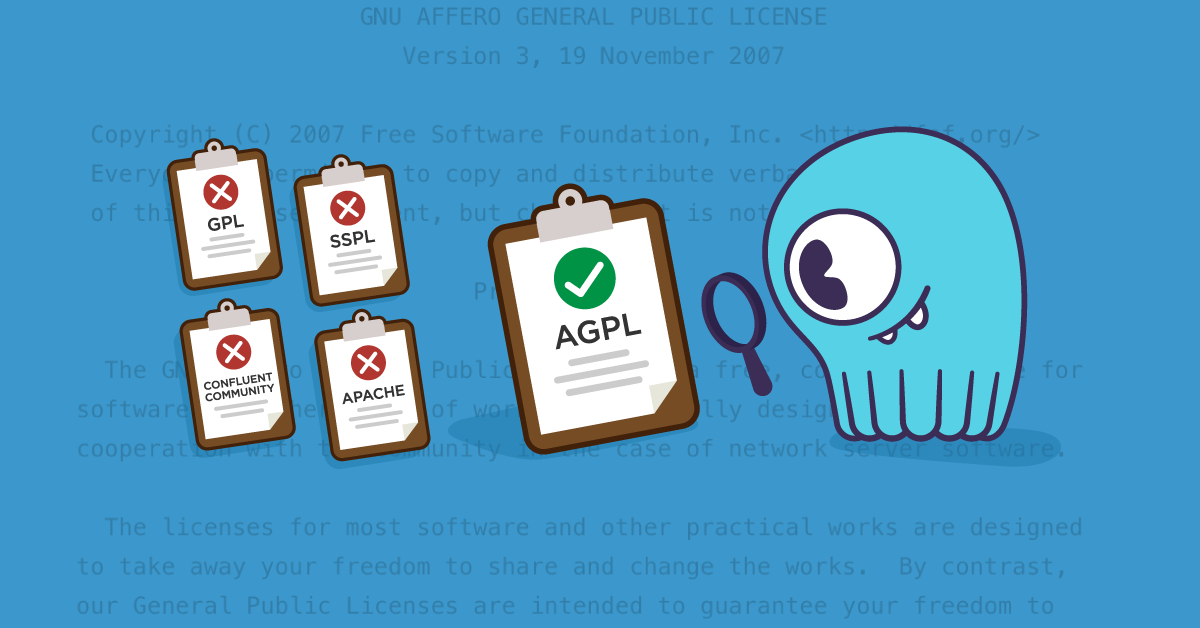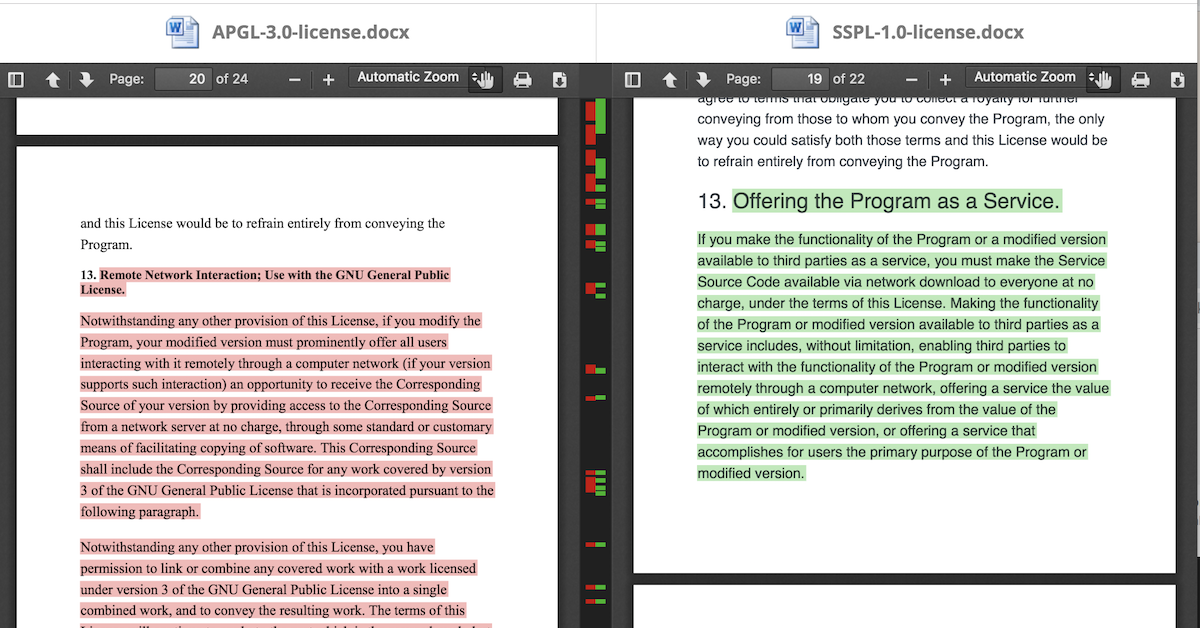
To quote Bob Dylan, “the times they are a changin’.” Microsoft loves Linux, IBM buys Red Hat, RedisLabs changes their module license to Commons Clause, Mongo invents Server Side Public License (SSPL) and moves from AGPL, AWS open sources Firecracker and releases a Kafka service, and the hot news from Friday, Confluent changes its license for components of the Confluent Platform from Apache 2.0 to the Confluent Community License.
A few weeks ago I wrote about MongoDB’s SSPL, which is similar to Confluent’s new license. You could say the Confluent Community License is to the Apache license as MongoDB SSPL is to AGPL. Both of these new licenses take the same position in order to protect their assets from cloud providers.
It is hard to blame Confluent for responding to pressure from the AWS Kafka service–and perhaps fear that other cloud vendors will follow. Rightfully, Confluent wishes to enjoy the fruits of their investment in KSQL and, in parallel, still keep it open source. It’s important to note that KSQL isn’t part of the Apache Kafka project, which remains under the ASL2 license and was fully developed by Confluent. To the best of my knowledge, AWS has not provided KSQL as a service but perhaps this is a means of preventing future abuse. AWS adoption of Kafka also signals a victory for of OSS Kafka over the proprietary Kinesis technology.
Although more and more OSS vendors are going down the path of more restrictive licenses, and they might even eventually make these standard, overall this is a step in the wrong direction for our industry. These more restrictive licenses have the regrettable consequence of creating silos where once there was sharing.
Remember that just the opposite was true for large community projects like Linux, KVM, and Hadoop, which saw contributors line up by the hundreds. Unfortunately, pressure from SaaS/Cloud providers is turning OSS vendors toward the undesirable (but perhaps logical) path of more restrictive usage licenses. This is a lose-lose scenario, one that goes against the very spirit of open source.
In a perfect world, customers would not use OSS software-based services from vendors who did not participate in the creation of that software. This is the flag that OSS vendors should carry. On the other hand, it’s hard to compete with an 800-pound gorilla that owns a lot of the mindshare of the industry.
My prediction is that vendors like AWS will receive more criticism and, in response, will lean more and more toward an open source play. Were this a game of chess, a streaming SQL query functionality contribution to Apache Kafka by AWS would result in a call of check. Let’s stay tuned and see how it evolves.
Another class of companies who will be hurt by this licensing trend will be smaller as-a-service vendors that provide MongoDB/Elastic/Kafka/etc. Despite their contributions back to the OSS, these smaller companies will be hampered by the more restrictive licenses, which will keep them from running the very technologies they’ve aided. Examples include mLabs with MongoDB, Instaclustr with Kafka/Confluent, and IBM Compose with a variety of offerings.
This trend is neither healthy nor ideal. We should all want to see OSS vendors and IaaS vendors complement each other — either by contributing to the same OSS project and sharing the commercial benefits or by allowing the OSS vendor to monetize on top of the IaaS market place. As an end user, you should support this cause by directing your buying power toward not only the vendors providing the best services, of course, but also the ones making a difference by aligning themselves with the overall long term value you receive from the ecosystem.
Dor is the co-founder and CEO of ScyllaDB, who develop the AGPL’ed ScyllaDB database and Seastar, its Apache-licensed core engine.


